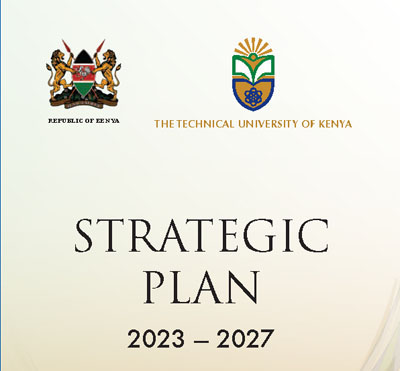TU-K has taken a major step toward international academic collaboration with an American institution by hosting a delegation from the University of Florida (UF) to discuss the Gator Africa Initiative, a strategic programme aimed at strengthening research, teaching, and exchange partnerships.
The visit today, 27th July 2025, by a delegation from UF to TU-K, focused on exploring mutual interests in advancing science, technology, engineering, and mathematics (STEM) education, with a special emphasis on Electrical and Computer Engineering (ECE).
The Gator Africa Initiative seeks to empower African academic institutions through joint research, modern curriculum development, and immersive exchange programmes for students and faculty alike.
The Vice-Chancellor, Prof. Benedict Mutua, welcomed the UF team and underscored the University’s commitment to meaningful international collaborations. He noted that the proposed Memorandum of Understanding (MoU) to be signed by the two institutions would aim to bolster research capacity, enrich academic programmes, expand infrastructure, and offer students and faculty greater global exposure.
Present during the event were Prof. Paul Wambua (Deputy Vice-Chancellor, Institutional Advancement and Entrepreneurship), Prof. Maurice Amutabi (DVC, Academic and Student Affairs), Prof. Eng. Cleophas Maende (Executive Dean, Faculty of Engineering and the Built Environment), Prof. Alex Muumbo (Director, Centre for Open and Distance Learning), Prof. Salesio Kiura (Director, ICT), Dr Bilha E. Gitonga (Director, Quality Assurance) , Dr. Moses Wamalwa (Registrar, Academic Programmes), Chairpersons of Department, and other senior faculty members.
The University of Florida delegation was led by Prof. Mark M. Tehranipoor, Chair of the ECE Department, and included Prof. Christophe Bobda; Assoc. Prof. Farimah Farahmandi, who also serves as Director of UF’s Cyber Security Center; and Industry Coordinator Faith Snow.
During the interactive session, TU-K’s heads of department shared current challenges and opportunities where collaboration with UF could drive impactful solutions. In response, Prof. Tehranipoor outlined some of the initiative’s key areas of focus that include, Faculty and Student Exchange thus promoting shared learning experiences and collaborative research projects, curriculum development that include updating and enriching STEM content to align with global industry demands, sustainable development goals (SDGs) using research and education to address Africa’s local challenges through a sustainability lens, infrastructure development of the university and capacity building.
The dialogue concluded on a high note, with both universities expressing optimism about the path ahead. The partnership is expected to open new doors for innovation, capacity building, and shared academic excellence.
The University of Florida is the third largest public university in the United -States, boasting over 54000 students and an annual budget of $6 billion. It is also a leading collaborator with NASA, highlighting its expertise and leadership in advanced technological fields.




